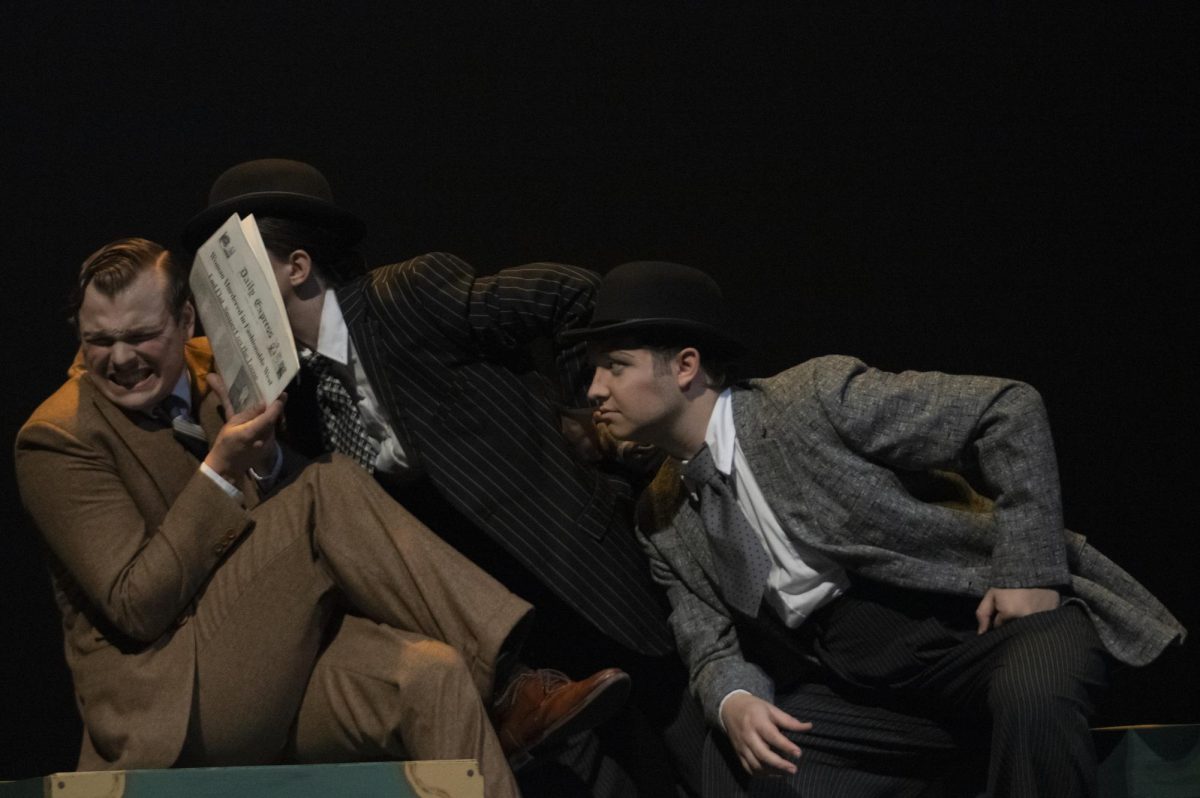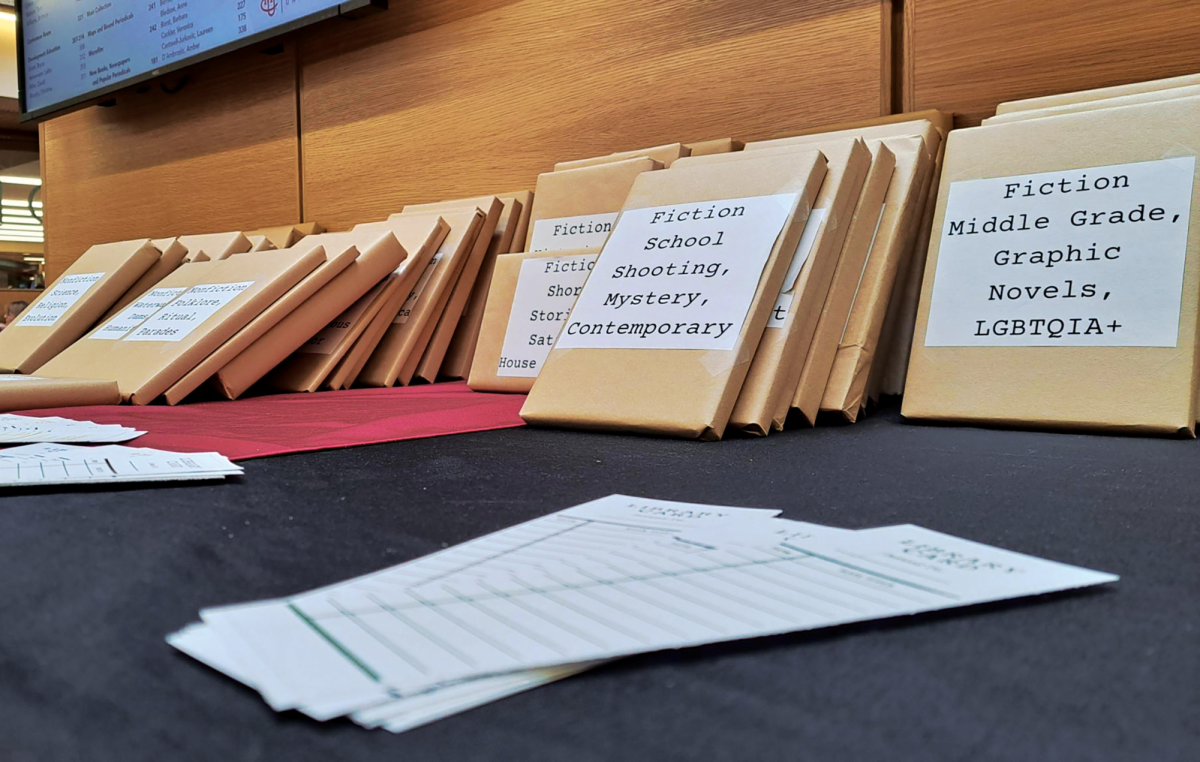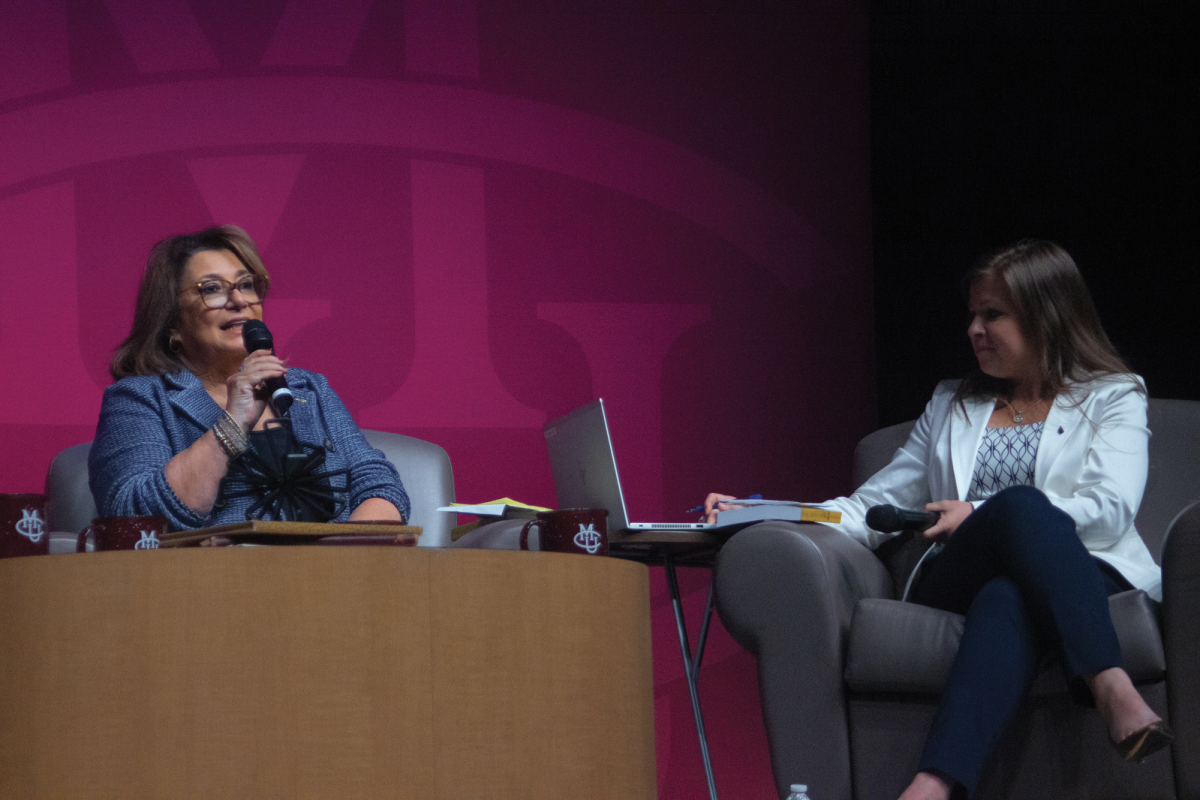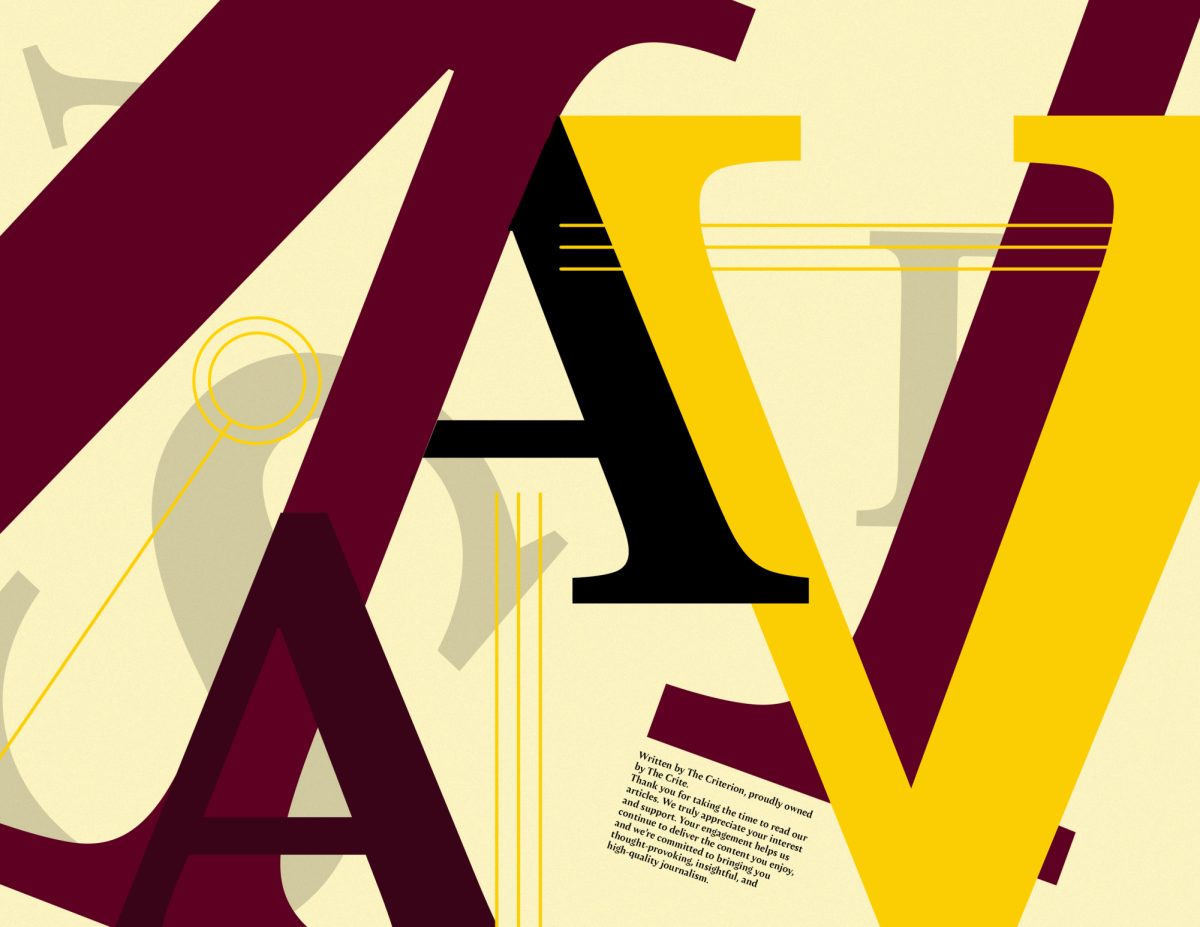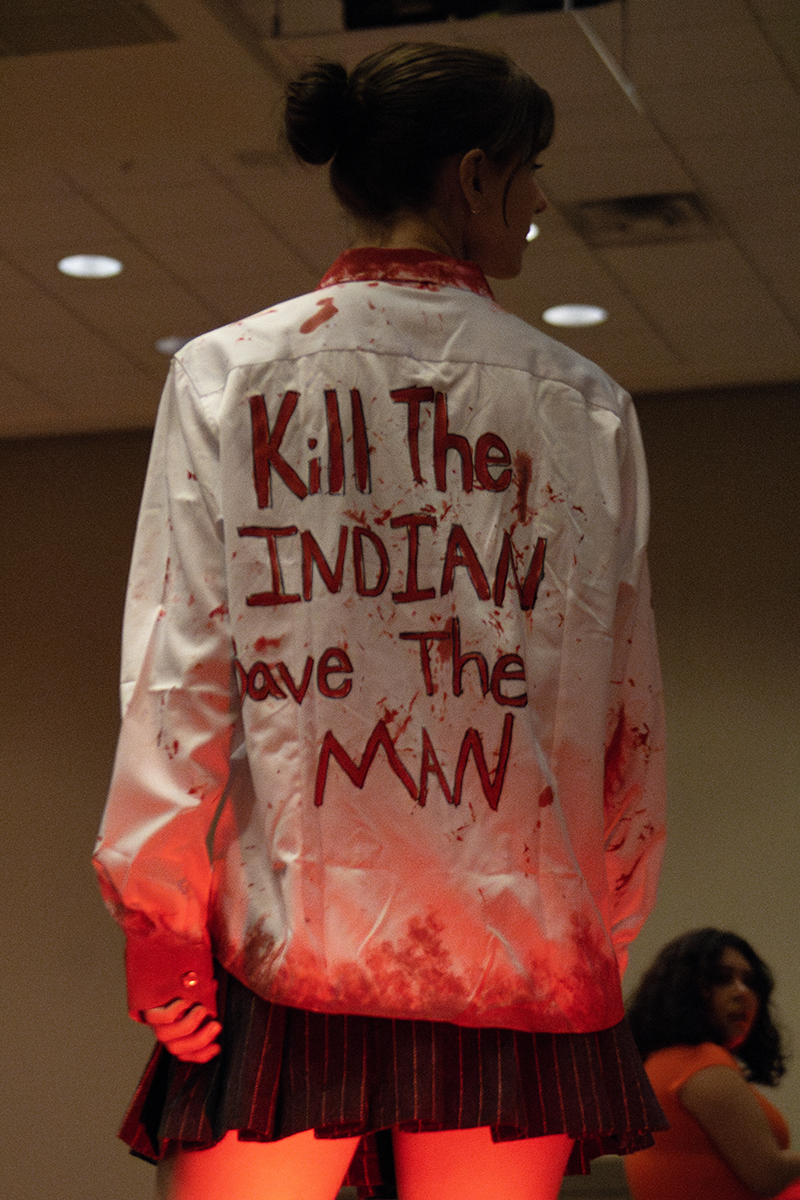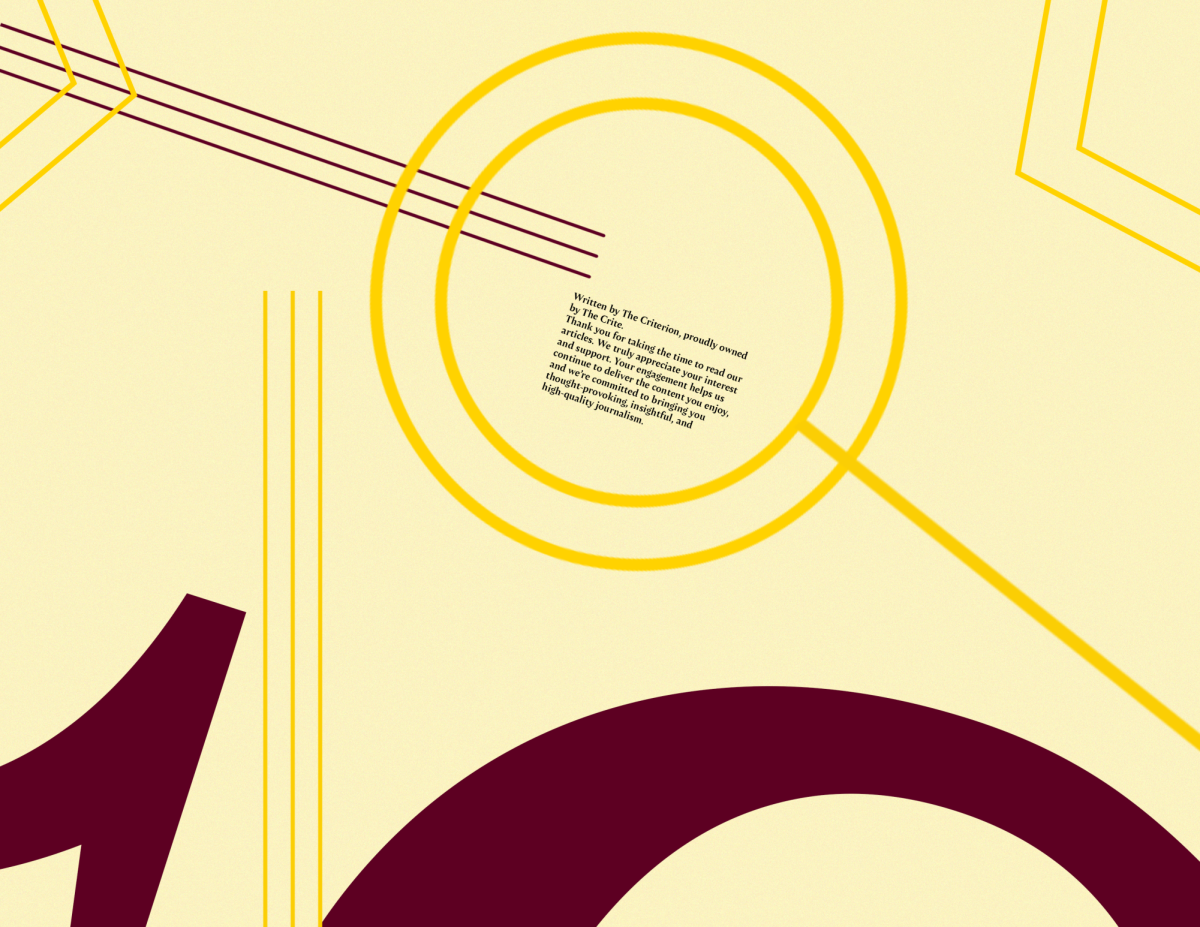“It’s a little bit like riding a bike without training wheels,” Joe Castinado said, regarding the process of preparing for the upcoming Colorado Mesa University theatre department’s performance of Thornton Wilder’s “Our Town.”
Though published in 1938, the metatheatrical American classic doesn’t have any of the aspects audience members might expect. As with “Grand Night” and “Polar Opposites,” there will be no costumes changes, no set changes and no character makeup. There’s not even a linear plot line, though Castinado and Director Mo LaMee insisted the play wouldn’t be confusing due to a linear emotional tract—a love story—that runs throughout the performance.
“Time is the subject in a way; it’s about time being fleeting,” LaMee said, after describing how the play moves forward and backward in time without indication, allows dead characters to speak, and allows other characters to step outside of the play and speak directly to the audience, a hallmark quality of metatheatre.
For Castinado and the two other lead performers, Kris Karns and Tilly Leeder, the non-traditional elements of the play have been both challenging and freeing during the rehearsal process. Castinado specifically spoke to the fluidity of the play, which it gains by losing these traditional elements such as chronology, costume and setting.
“A lot of times, you might depend on your costume for more of how you walk as a character or the set changes for how you interact with your environment,” Castinado said. With “Our Town,” these traditional acting strategies weren’t available.
Castinado plays George Gibb, who he describes principally as a simple person and Emily’s best friend and eventual love interest.
“It’s not about him being stupid or anything, it’s just him being like, it doesn’t need to be any more complicated than the way I’m making IT,” Castinado said.
“And not to get into process or anything, but that’s how I approach it as well. It doesn’t need to be any more than this. At the beginning, I had so many things I was trying to try and see if it worked, but every time the simplest thing that I did, I was like, that’s where it is.”
Tilly Leeder expressed the same sentiments about her tendency to overcomplicate the play early on in the process. Leeder, who plays Emily Webb in her first performance at CMU, describes her character as a shy and observant girl who is intensely aware of her natural environment.
Learning to act with no other theatrical elements for support, such as costuming to denote age change, was a challenge. Leeder explains that her character moves from 16-year-old to a twenty-something young woman, a change she must convey with demeanor alone while keeping the core of her character intact.
“It’s hard to keep the foundation of your character and then age,” Leeder said.
However, once Leeder allowed herself to let go of her expectations and experiment, she said she discovered more about herself as a performer.
[media-credit id=100 align=”alignleft” width=”300″] [/media-credit]
[/media-credit]
Karns moved through the same trajectory from over-complication to simplicity as Castinado and Leeder did. Karns, who plays Mr. Webb, a small-town newspaper editor loosely based on Wilder’s own father, said his character is defined by his role as a father, his caring demeanor and his concern for others’ well-being.
“If you haven’t done a play like this before, it’s hard to let go of some of things you know as an actor,” Karns said.
When Karns learned to let go of his expectations as a performer, he said the simplicity of the play allowed for more freedom as an actor.
All three lead actors focused heavily on the potential for discovery while working on this particular play, and their exploration of the process was certainly the element which defined rehearsals.
Karns discussed how theatre rehearsals are often “grueling,” especially in musical theatre where performers must re-do the same small section of dance over and over again. However, the preparation for “Our Town” seemed to center more around understanding character motive.
The rehearsals began with table-reading, in which the performers sit and simply read through the play, pausing for discussion, which in this case was often long, according to Karns. For Karns, the play is mainly about the exploration of relationships. Though the play deals with relationships, Karns needed to define his role as a father for his performance, which he said was difficult since isn’t one.
“There’s things that I’ve decided, or that we’ve talked about, as a character, that the audience will probably never know that I’ve decided upon as an actor,” Karns said, referring to some of his personal discoveries during this exercise.
Karns acknowledged that the audience will likely interpret his character differently than he does an actor; however, as LaMee said as well, the discovery that this play prompts isn’t just for the actors.
Since “Our Town” isn’t conflict-driven like most literature and theatre, the focus of the play centers upon both the relationships between the characters, and the relationship between theatre and audience.
“The conflicts are fairly mild and they’re resolved sort of wisely,” LaMee said. “So, it’s not really what’s going on in the play. The conflict, if there’s a conflict, it’s with our own mortality.”
Unlike plays focus upon conflicts between characters, the conflict of “Our Town” is likely an internal one, provoked within audience members by this work.
LaMee described the thematic idea of the play as “the necessity of absorbing, becoming conscious, appreciating the very fact that we live and breathe and taste and eat and smell and live in this world.”
The non-traditional elements of the play that break with both performer and audience expectation reflect another idea of the play that LaMee expressed, the idea that “through habituation, we lose sight of [consciousness] and this play is a beautiful reminder that we are temporal beings.”
Just as the play expresses these themes, its form reflects them as well, as audience members are unlikely to be habituated to the chronology breaks, direct addresses and minimalist setting.
Though nearly 80-years-old, “Our Town” is still unlike many of the more traditional plays that universities, including CMU, often perform. According to LaMee, the play is considered a classic by most great writers, actors and directors.
“I think there’s a reason that plays like this are classics, and you don’t know why they are unless you go see why they are,” LaMee said. “I think students and the audience will have a memorable evening in the theatre that’s meaningful.”
“Our Town” will run Nov. 9-11 at the Robinson Theatre mainstage.



